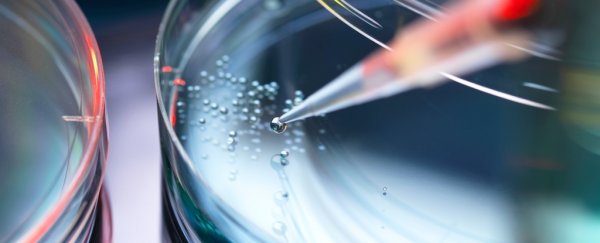Germany's Benjamin List and Scottish-American David MacMillan on Wednesday won the Nobel Chemistry Prize for developing a tool to build molecules that has spurred new drug research, scaled up production and made chemistry more environmentally friendly.
The processes they developed independently of one another in 2000 are used to control and accelerate chemical reactions.
Prior to their work, scientists believed there were only two types of catalysts – metals and enzymes.
The new technique, which relies on small organic molecules and which is called "asymmetric organocatalysis", is widely used in pharmaceuticals, allowing makers to streamline the production of drugs for depression and respiratory infections, among others.
Organocatalysts allow several steps in a production process to be performed in an unbroken sequence, considerably reducing waste in chemical manufacturing, the Nobel committee at the Royal Swedish Academy of Sciences said.
List and MacMillan, both 53, will share the 10-million-kronor ($1.1-million, one-million-euro) prize.
"I thought somebody was making a joke. I was sitting at breakfast with my wife," List told reporters by telephone during a press conference after the prize was announced.
In past years, he said his wife has joked that he should keep an eye on his phone for a call from Sweden.
"But today we didn't even make the joke," List, who is a director at the Max Planck Institute in Germany, said.
He called Scottish-born MacMillan with the news in the wee hours of the morning in the United States, but the Princeton professor didn't believe it either and went back to sleep.
"I'm incredibly happy, but at the same time, I'm still trying to find my feet and understand what is happening today, it's all a whirlwind," MacMillan told AFP.
So proud
Asked about what the prize would mean for his future as a researcher, List promised he had "a few more plans".
"I always like to go to the extremes. 'Can we do things that were just impossible before?'" List told reporters. "I hope I live up to this recognition and continue discovering amazing things."
MacMillan, the son of a steel worker and house cleaner who credited his Scottish public school education with his success, told AFP he was proud his research had helped produce enough medicine for the world.
He hopes the next breakthroughs will come through his lab's work on "photoredox catalysis", using visible light to break and rejoin atomic bonds, one electron at a time.
Explaining the award, the Academy said "many research areas and industries are dependent on chemists' ability to construct molecules that can form elastic and durable materials, store energy in batteries or inhibit the progression of disease".
"This work requires catalysts, which are substances that control and accelerate chemical reactions, without becoming part of the final product," it added.
List was the first to prove that the amino acid "proline", which he called his favorite catalyst, could drive an aldol reaction, which is when carbon atoms from two different molecules are bonded together.
"Compared to both metals and enzymes, proline is a dream tool for chemists. It is a very simple, cheap, and environmentally friendly molecule," the Academy said.
Gold rush
Since their discovery, developments in the field can "almost be likened to a gold rush", with List and MacMillan designing "multitudes of cheap and stable organocatalysts", the Nobel committee noted.
For example, in 2011, researchers were able to make the production process for strychnine, today mostly used as a pesticide, 7,000 times more efficient, reducing it from 29 chemical reactions to just 12, it said.
Ahead of Wednesday's announcement, analysts had said the chemistry field was wide open.
According to Clarivate, which maintains a list of potential Nobel Prize winners, more than 70 researchers had what it takes to be considered for the prize, given the thousands of citations they have received in scientific papers.
The Nobel season continues with the two most closely watched prizes, literature on Thursday, and peace on Friday. The winner of the economics prize will be announced on Monday.
The medicine prize kicked off the 2021 Nobel season on Monday, going to David Julius and Ardem Patapoutian for breakthroughs that paved the way for the treatment of chronic pain.
The physics prize followed Tuesday, when half was awarded to US-Japanese scientist Syukuro Manabe and Klaus Hasselmann for climate models, and the other half to Italy's Giorgio Parisi for work on the theory of disordered materials and random processes.
